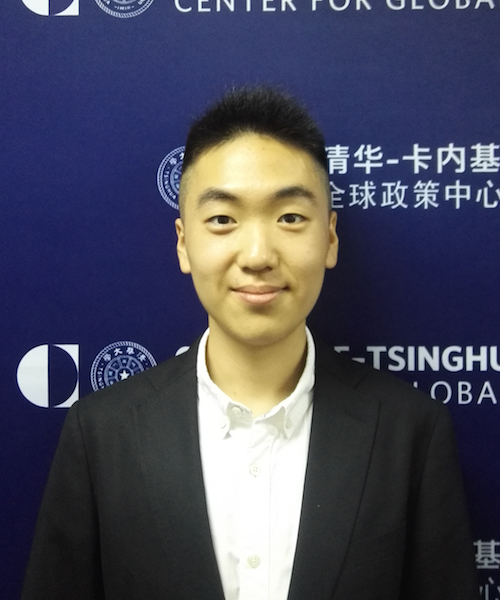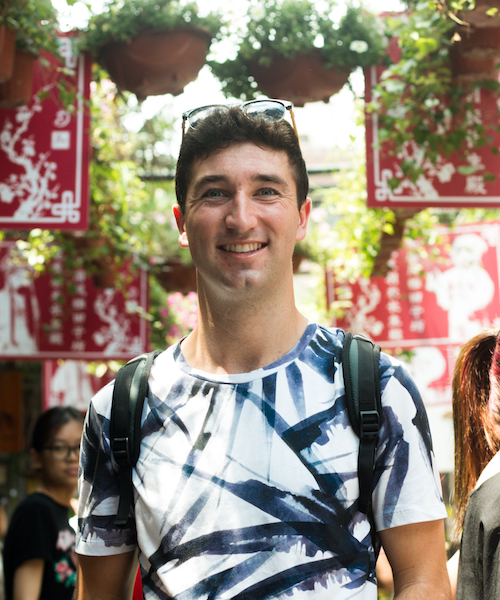
Addressing Global Issues with Innovations of the Digital Age —A Case on Combating Internet Terrorism
Chenyu Wu | June 3, 2018
Responding To: Living in a Digital Age: How Young Chinese and Americans Can Employ Innovation to Resolve Global Issues
Hongjin Xu
Science is the result of our perception and understanding towards the world, and technology is how we utilize the scientific results to invent and create. Throughout history, we have seen major economic, political, social and ideological transformation in the wake of technological advancement, and we are now in another monumental moment. We are approaching, or have already stepped into a digitalized world in which our behaviors can be transformed into digital bits, and then be recorded and analyzed. Luckily, our generation (peers born in 1980s and 1990s) is the primary witness of the effects of digitalization.
I remember 12 years ago in Changsha, the provincial capital of Hunan Province, China, flip phones such as Nokia, were still the trend, and parents might scold their children for playing on their mobile phones while walking on the sidewalk. Now, the situation is completely different. You cannot fully enjoy your days in Changsha if you do not have a smartphone or good network connection. We have one phone for everything, from ordering food delivery, tickets and cheaper taxis, to improving working efficiency, browsing the latest news and staying connected with friends. Mobile electronic products even make good date partners for young people living alone in big cities, as they provide pleasure and comfort, and never complain.
Of course, although being wonderful representatives, smart products do not tell you everything about the digital world. The core is the information and data created by everyone using these tools. Every item and page we have browsed, every word we have searched and every choice we have made online, are all traces we leave on the internet, which then become the samples and assets of the companies providing these services, empowering them to leverage this data in the capital world. In this case, we are not only the consumers, but also the producers of the digital age. And, some argue that this collective data should be regarded as a product of labor and be treated more productively.
Based on this double-role, how does our young generation utilize the innovations of the digital age, to voice our opinion and make a positive impact on a broader global stage? My principle is to always use technology with consciousness. The existence of technological innovations does not mean that we are able to use them wisely. Some people create instruments and tools, while some may become addicts of them.
The first step is to know what instruments we are equipped with. Social media and online forums are ideal places to share experiences, change ideas and build networks. These platforms have been the battlefield for Parkland High School students appealing for legislation reform after the school shooting tragedy, as well as for women calling for a stop to sexual assault and gender inequity in the #MeToo campaign, which later on sparked
These movements have received significant attention and made unprecedented progress, and social media has once again proven its effectiveness in global issues in terms of instantaneity and an advantage in overcoming geographical barriers. Other uses include online educational services for academic purposes, for news agencies to provide different angles, and for trustworthy international organizations to sharing data online for insights. Although sometimes we may find ourselves in an environment with limited resources, it is crucial for us to know what we can take advantage of in this era, and thus to step out of the echo-chamber, form our own opinions, and take effective measures.
Always select the information with consciousness instead of accepting everything without thinking or questioning. Some information posted online by authority, such as the WHO, is of high authenticity, while some circulated online without a proper reference should be regarded as unreliable. Another concern is that we are faced with an information explosion at this time. The abundance of information is making people feel overwhelmed. Personally, I feel anxious and restless when having browsed too many posts, updates and videos at one time, bothered by a feeling, which many peers may share, that I am left behind while the whole world is rushing forward.
However, do we necessarily need that much information? This goes back to the idea of consciously consuming information. Receiving too much, just like bingeing on junk foods, is deleterious, as it obscures the meaningful information and leaves logic behind. For example, the stance and commitment our leaderships take and make in global issues can signal the shift in domestic policy making, and then bring about change, directly or indirectly, in various businesses in which our generation is going to enter.
Our information privacy should also be minded. As the producer of all this data, we are constantly instilling vitality into this world by every action we take online, especially by the information we upload. I already feel threatened when knowing technology companies actually design the information I receive online based on calculations of both of our interests: the items I liked and the possible profits they can gain from it, not to mention some companies would just sell your personal information to a third party. In this gradually networked era, be aware of our producer role and do not end up being the sacrifice.
No matter how overwhelming this digital world seems to be and how intelligent the innovations become, they are created by us, the people, after all. I hope by utilizing technological innovations properly and consciously, we can step into a truly brave, new world, in which we are the masters of the instruments we generated.
Hongjin Xu is a fifth-year major in psychiatry in the Xiangya School of Medicine at Central South University in Hunan Province, China.

Chenyu Wu | June 3, 2018

Yunxin Wang | June 1, 2018

Michael Mullaney | May 30, 2018

Cynthia Wang | May 28, 2018

Ruolin Zhao | May 27, 2018

Yamillet Payano | May 24, 2018

Jessie Dalman | May 23, 2018

Haile Chen | May 22, 2018